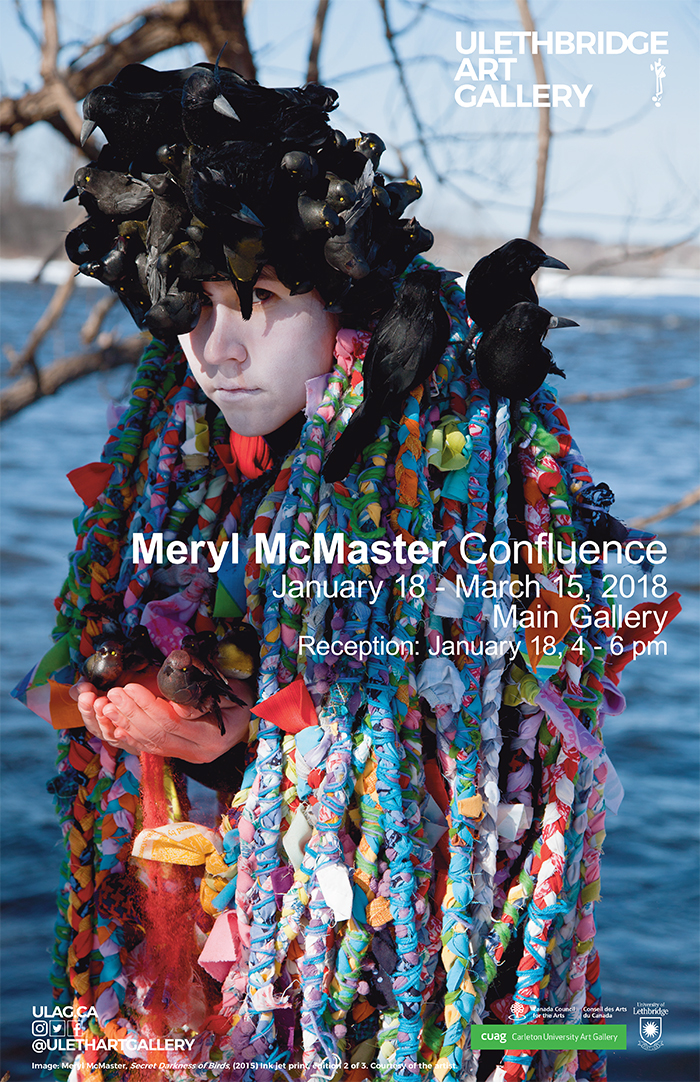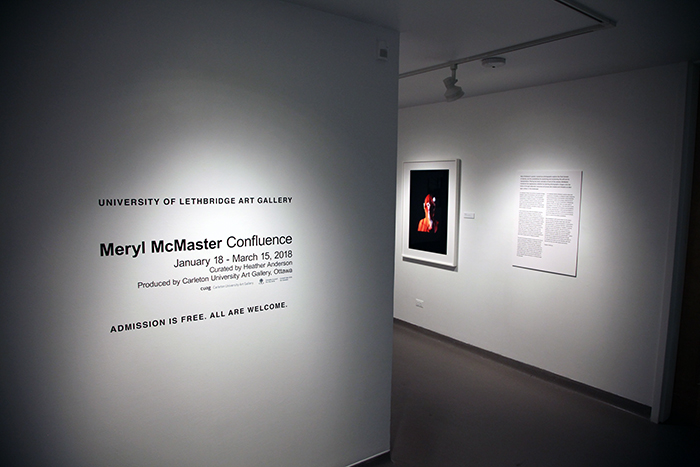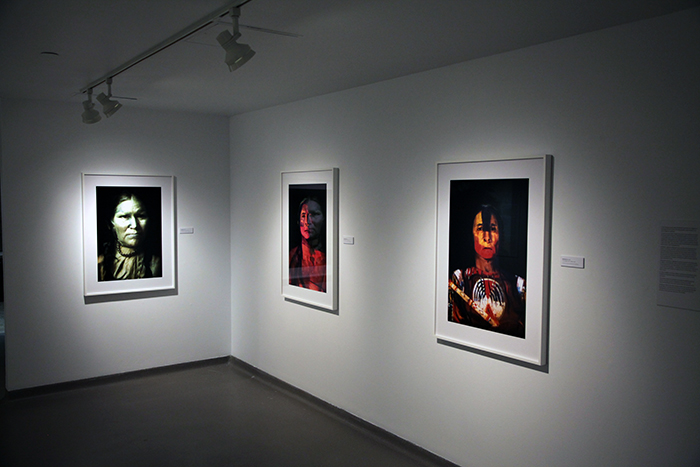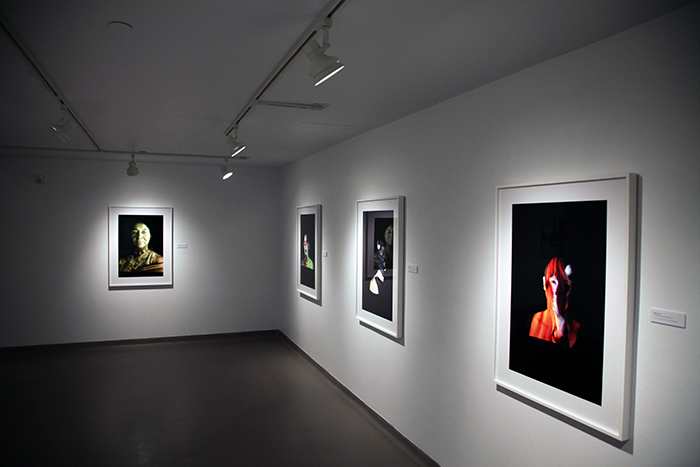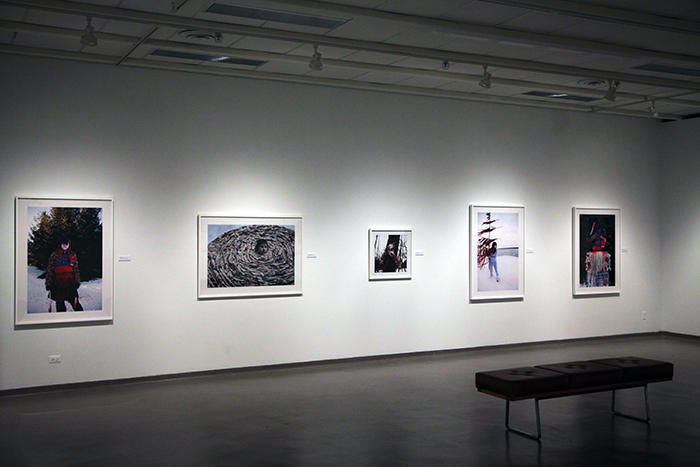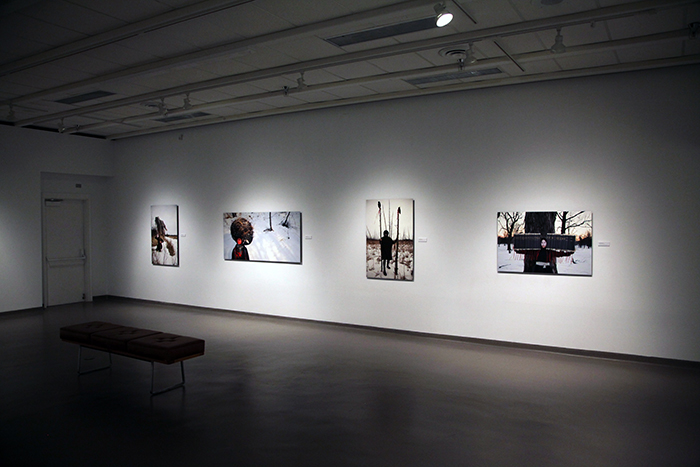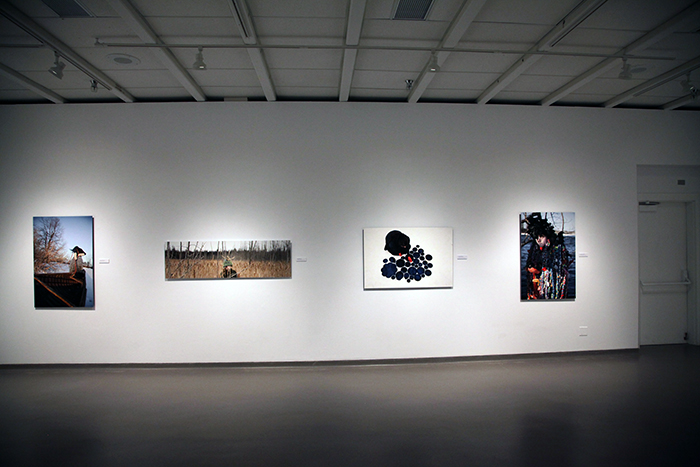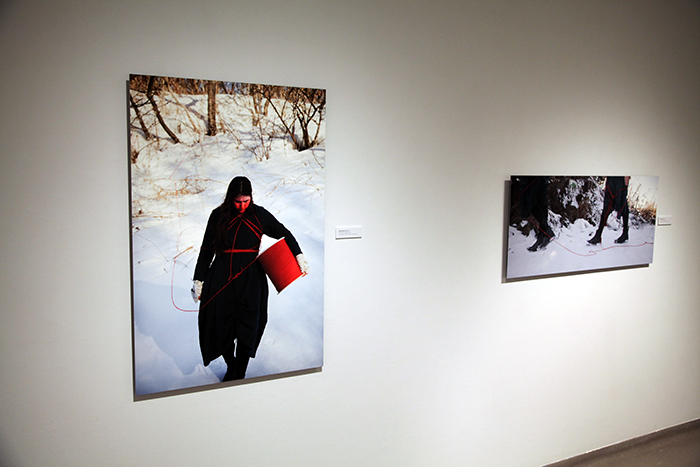Main Gallery
Meryl McMaster: Confluence
January 18 – March 22, 2018
Artwork by Meryl McMaster
Curated by Heather Anderson
Produced by Carleton University Art Gallery, Ottawa
Meryl McMaster has been garnering praise across Canada for her explorations of identity, representation, storytelling, and the environment through photographic self-portraiture. This touring exhibition features McMaster’s newest body of work and selections from earlier series.
Her potent, mysterious photographs explore the fluid domain of identity, and the possibilities for examining and revisioning the self and its representation. Placing her body centrally in front of the camera, McMaster transforms her appearance, whether by layering photographic images onto her body or through elaborate costumes and props she creates and inhabits as alter egos, solitary in the landscape.
Curatorial Statement
An individual of Plains Cree and Euro-Canadian heritage, McMaster explores the dimensions of her own sense of identity, and the complex history of the photographic representation of Indigenous peoples. The three bodies of work in Confluence comprise arresting self-portraits that counter the stereotypical ways that Indigenous peoples have been, and sometimes still are, represented within a colonial framework, principally as objects rather than as subjects of the gaze. In her Ancestral series (2008-09), McMaster explores this legacy and her heritage by projecting onto her own face, and that of her father’s, historic portraits of Indigenous individuals by such photographers as Edward Curtis and Will Soule, as well as by painter George Catlin. Challenging the enduring power of photography to define and fix identity, McMaster endeavours to “reclaim these images from the stereotypes and misrepresentations … and move them into a contemporary space.” As she has said, “they could speak through me and, in that way, reclaim their voice.” In Fawn, Buffalo, and Horse, she projects photographs of animals onto her father’s head and torso, evoking the symbolic and material significance that certain animals have for Indigenous peoples. The interconnectedness between humans and the natural world is emphasized in McMaster’s In-Between Worlds (2010-13) and Wanderings (2015) series, which are set in winter landscapes, to otherworldly effect. McMaster transforms herself into a human-animal hybrid with arms wrapped around a tree in Sentience, attracting birds that cluster tightly on her head, shoulders, and in her hands in The Secret Darkness of Birds. In other photographs, she wears feather, antler, wool, and pinecone adornments to portray enigmatic figures stationed in or moving through the landscape. In In-Between Worlds, McMaster explores states and experiences of liminality, an ambiguous space created by being simultaneously of and between cultural identities and histories, as well as the synergy created by her bicultural heritage. The cast of characters in Wanderings alludes to those one might meet on an epic quest, in the endeavor to find one’s way. In this new body of work, McMaster contemplates the limitations and possibilities of the self, examining ways in which personal identity is at once tethered to the past, to personal circumstances, and all that shapes who we are, yet can also be radically open to a world of boundless possibilities. Meryl McMaster’s self-transformation for the camera and her resulting dreamlike images align with what Gabrielle Moser has called photography’s “transmutation and transformation of physical materials,” underscoring the ways in which photography is “capable of receiving images from and of the world.” We can conceive of McMaster as both a sender and a receiver of images, interweaving her own image with real and imagined worlds to reveal the complex and nuanced ways in which all identities are shaped and experienced. Through her own transformations for the camera, she invites us to reimagine and project our own identities, with their histories and ties, into other spaces and stories.
– Heather Anderson, Curator, Carleton University Art Gallery, Ottawa
